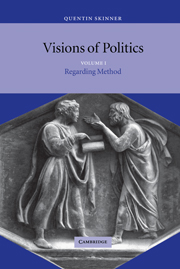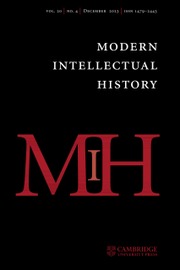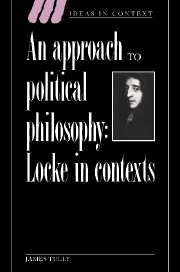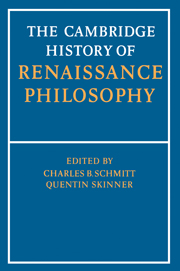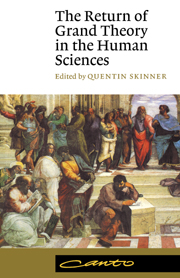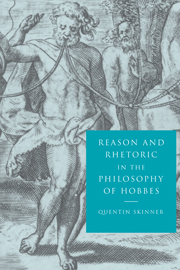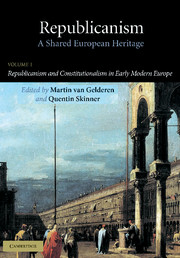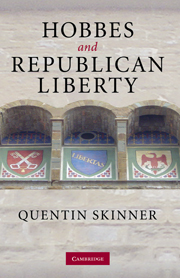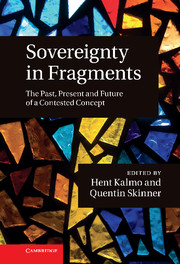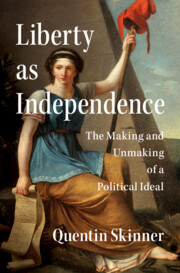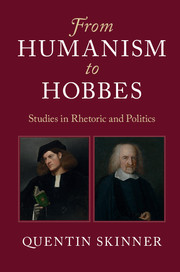
From Humanism to Hobbes
Studies in Rhetoric and Politics
£26.99
- Author: Quentin Skinner, Queen Mary University of London
- Date Published: January 2018
- availability: In stock
- format: Paperback
- isbn: 9781107569362
£
26.99
Paperback
Other available formats:
Hardback, eBook
Looking for an inspection copy?
This title is not currently available on inspection
-
The aim of this collection is to illustrate the pervasive influence of humanist rhetoric on early-modern literature and philosophy. The first half of the book focuses on the classical rules of judicial rhetoric. One chapter considers the place of these rules in Shakespeare's The Merchant of Venice, while two others concentrate on the technique of rhetorical redescription, pointing to its use in Machiavelli's The Prince as well as in several of Shakespeare's plays, notably Coriolanus. The second half of the book examines the humanist background to the philosophy of Thomas Hobbes. A major new essay discusses his typically humanist preoccupation with the visual presentation of his political ideas, while other chapters explore the rhetorical sources of his theory of persons and personation, thereby offering new insights into his views about citizenship, political representation, rights and obligations and the concept of the state.
Read more- Presents new research on the political theory of Machiavelli and Thomas Hobbes
- Reveals Machiavelli's and Shakespeare's debts to classical rhetorical texts
- Offers new interpretations of Thomas Hobbes's theories of representation, sovereignty and the state
Reviews & endorsements
'In these beautifully crafted essays Skinner shows how Machiavelli, Shakespeare and Hobbes use the plenitude of rhetorical techniques of the humanist curriculum to craft persuasively the features of their different yet equally famous texts. Moreover, each confronts differently the chaos that ensues when these radically redescriptive techniques enter into the world they strive to characterise. A masterpiece.' James Tully, University of Victoria, British Columbia
See more reviews'In these brilliant essays, centered on Thomas Hobbes, Quentin Skinner presents political discourse as rhetoric, forensic and theatric. He shows how tactical maneuver established fictions which became analytical realities. A challenge and a step forward for political theorists and historians of early modern England and Europe.' J. G. A. Pocock, The Johns Hopkins University
'Quentin Skinner is one of our greatest living humanists. He understands from within the classical tradition that nourished thinkers from Machiavelli to Hobbes and wields language with the force of a Renaissance rhetorician. In this timely work, he deepens his long-standing engagement with humanism and with Hobbes, expands his range to Shakespeare and Milton and sheds new light on the conceptual genealogies of virtue and liberty, representation and the state. From Humanism to Hobbes will be indispensable for intellectual historians, political theorists and early modernists alike.' David Armitage, Harvard University
'Gathered as From Humanism to Hobbes: Studies in Rhetoric and Politics, these essays by Quentin Skinner add greatly to our understanding of the pedagogical and intellectual context in which Hobbes' extraordinary civil science took shape. Even more, though, they offer a masterclass in the particular method of recovering the history of political thought (often referred to as the 'Cambridge School') that has justly become synonymous with Skinner himself.' Sophia Rosenfeld, Walter H. Annenberg Professor of History, University of Pennsylvania
'This is a sparkling collection of essays, elegantly constructed and written with grace and wit. It effortlessly affirms Quentin Skinner's standing as one of the leading historians and finest prose stylists of the day. Each essay considered singly illuminates and develops themes that have animated his recent work - whether the revival of the studia humanitatis and its effects, the visual representation of political ideas, rival conceptions of liberty and political representation, or the genealogy of the modern state - to sometimes striking and revisionary purpose. Considered as a whole, the collection will surely succeed in its design to persuade readers that the cultural shift 'from humanism to Hobbes' was by no means so long a march as has sometimes been supposed, even as it raises pointed questions about the long-run consequences of that shift for political understanding and for our collective well-being as citizens.' Tim Stanton, University of York
'The book is more than the sum of its parts, but these parts are also each extremely valuable for their respective topics … Each chapter provides new insight, contributing to an overall impression of the importance of humanist education on the major figures of the Renaissance and Early Modern periods, including Shakespeare, Milton and Hobbes.' Joanne Paul, The English Historical Review
'… [this] volume will stand the general reader and the specialist alike in good stead.' Victoria Kahn, Society
'Skinner provides a masterful survey of these laws and institutions, including the canny and pragmatic use of religious observance to foster virtù among citizens.' Victoria Kahn, Springer journals
Customer reviews
Not yet reviewed
Be the first to review
Review was not posted due to profanity
×Product details
- Date Published: January 2018
- format: Paperback
- isbn: 9781107569362
- length: 444 pages
- dimensions: 228 x 154 x 20 mm
- weight: 0.72kg
- contains: 45 b/w illus.
- availability: In stock
Table of Contents
List of illustrations
Acknowledgments
List of abbreviations and conventions
1. Introduction
2. Classical rhetoric and the personation of the state
3. Machiavelli on misunderstanding princely virtù
4. Judicial rhetoric in The Merchant of Venice
5. Rhetorical redescription and its uses in Shakespeare
6. The generation of John Milton at Cambridge
7. Rethinking liberty in the English revolution
8. Hobbes on civil conversation
9. Hobbes on political representation
10. Hobbes and the humanist frontispiece
11. Hobbes on hereditary right
12. Hobbes and the concept of the state
Bibliographies
Manuscript sources
Primary printed sources
Secondary sources
Index.
Sorry, this resource is locked
Please register or sign in to request access. If you are having problems accessing these resources please email [email protected]
Register Sign in» Proceed
You are now leaving the Cambridge University Press website. Your eBook purchase and download will be completed by our partner www.ebooks.com. Please see the permission section of the www.ebooks.com catalogue page for details of the print & copy limits on our eBooks.
Continue ×Are you sure you want to delete your account?
This cannot be undone.
Thank you for your feedback which will help us improve our service.
If you requested a response, we will make sure to get back to you shortly.
×


